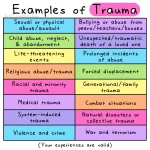Author: Dr. Henry Cloud. Jul 22, 2020.
http://www.boundaries.me/
We were created to need a close and intimate relationship not with others. Relationships are the fuel of life. They provide us with acceptance, encouragement, empathy, wisdom, and a host of other relational nutrients.
These nutrients keep us healthy and growing. In fact, many studies have shown that people without enough intimate relationships in life have more medical and psychological problems, as well as a higher mortality rate. The songwriters are correct: a lack of love can literally kill you.
So however we look at the digital age, we need to make sure that we are getting our relational sustenance. The key is this: whenever you have the opportunity, set a limit on the digital and default to face-to-face.
Intimacy Requires Multiple Levels of Information Exchange
This sounds a bit dry or technical, but it’s true: to be deeply connected in satisfying, safe, and vulnerable relationships, we need to express who we are at many levels and experience others at those same levels. The best relationships exchange information about feelings, passions, thoughts, and opinions. The more you know about someone at a deep level, the more you can say that you actually “know” them.
To accomplish this, we were created with the ability to engage in a mutual “exchange of information” using a variety of verbal and nonverbal modes of communication—words, eye contact, facial expressions, gestures, and so on.
Research has shown that at the very best, words provide no more than half of what is communicated in a relationship.
Also, intimacy requires us to experience the nuances between oneself and others.
When your teenager verbally agrees to go to her room and do her homework, but rolls her eyes at the same time, she is telling you something—and that something is that she will do what you ask, but you are a lame person for requesting it.
When you have a meeting with your team at work and one person is giving the right answers but sighing the whole time, he may be communicating how unnecessary he thinks this meeting is.
So more information exchange on multiple levels means a greater probability of intimacy. And that means you can now probably see some of the limitations of the digital world.
Communication technology is often helpful, but it can never be the gold standard of relationship building. Consider what is gained and what is lost with each of the following forms of communication:
Face-to-face conversations: Available information is exchanged at many levels. All five sensory receptors can be active: sight, sound, touch, smell, and taste.
Video conversations: Much of the available information can be exchanged, but only with sight and sound, which is more limited than being in the other person’s presence “space”.
vPhone conversations: Although phone conversations involve sound only, the positive aspect is that you can share back and forth in a natural way, and you can hear each other’s tones of warmth, love, humor, anxiety, stress, anger, and all the other emotions.
The negative side is, of course, that you aren’t able to see facial expressions, which convey huge amounts of information in a relationship. Also, even the audio tones are not as clear and “humanlike” as you experience face-to-face.
Email: Email is great for instantly communicating an idea, plan, or feeling by typing and sending it. However, with no sight or sound, it is a limited form of communication.
And email is becoming less used for personal connections than texting is, as it’s less convenient. It is still used more for business correspondence, but texting is also making more headway in this area too.
Texting: The ability to fire off short phrases on a smartphone is very convenient. You can do it while walking to lunch or working out at the gym. It is still harder to convey more complex ideas because of its limits in punctuation, but that is improving with technology advances.
Social media (for example, Facebook, Instagram, and Snapchat). The area of the digital world that provides a combination of text and video information is a fun way to stay in touch with family, friends, and organizations you are interested in. The video aspect adds a great deal of enjoyment to the experience.
The first three items on the list—face-to-face, video, and phone—are called synchronous communication. The remaining items—email, texting, social media—are asynchronous communication.
In synchronous communication, our comments are relayed and received instantly, with no time lag. That’s what happens in a regular conversation, like when you’re talking to someone over lunch.
In asynchronous communication, there is a time lag between making and receiving a statement. For example, you text someone that you’ll be a few minutes late, and they respond a few seconds or minutes later. But you don’t receive their response immediately.
Asynchronous or digital communication is just no substitute for synchronous communication. While there is a drop in the quality and quantity of information exchangedRead More
from face-to-face to video and then from video to phone communication, the drop from these three to digital communication is much, much greater.
From birth, we are designed to communicate directly and simultaneously: You say A, and the other person hears A immediately, then responds with B, which you hear immediately. The hope is that both of you feel that you are understood by the other.
With the right boundaries and rules in place, you can have the time you need to connect with the people with whom you want to connect and to accomplish the tasks you need to complete. It won’t take an overhaul of your time and effort. And the results will be more than worth it!
Shared by Sawayer Logistics at sawayer.com









